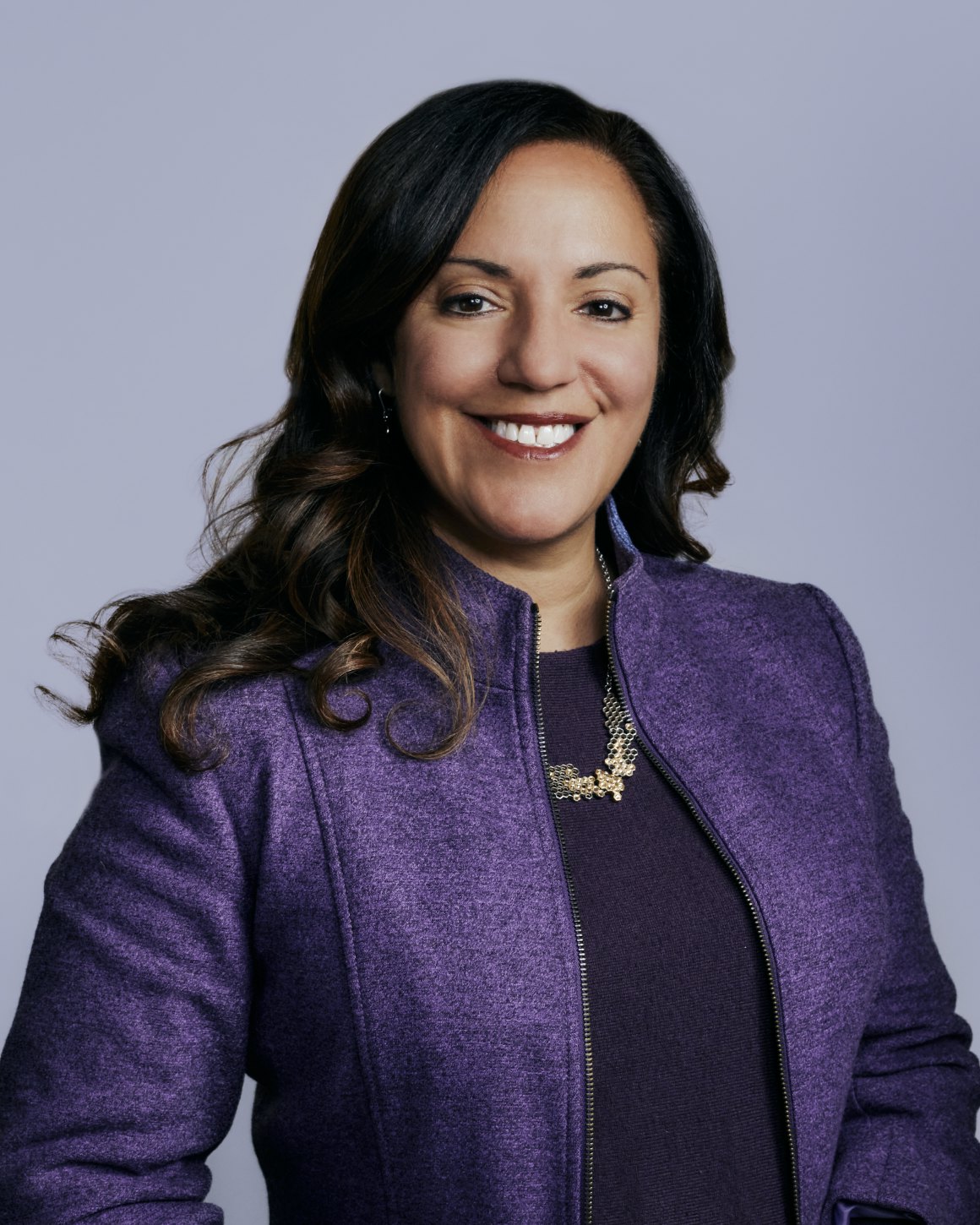As chief domestic policy advisor to President Bush and later as U.S. Secretary of Education, Margaret Spellings helped shape some of the most consequential bipartisan achievements of the early 21st century – including the landmark No Child Left Behind Act. Today, she continues that legacy as President and CEO of the Bipartisan Policy Center (BPC), where she champions pragmatic, cross-party solutions to America’s toughest challenges. Her leadership team includes several fellow Bush-Cheney alumni — Cheryl Oldham (EOP, DoEd), Chad Kolton (DoL, EOP, OMB, DNI DHS), David Hill (EOP, DoC, Treasury), and Jonathan Burks (EOP, Treasury, SEC) — who bring deep experience and shared values to the work. In this edition of “Five Questions With…” Spellings reflects on the enduring power of collaboration, the urgent need for educational accountability, and the leadership lessons she carries forward from her decades of service alongside President and Mrs. Bush.
Q: You’ve long championed the power of bipartisan collaboration. What gives you hope today that the BPC’s model — bringing Republicans and Democrats together to craft durable solutions — can still break through the gridlock in Washington?
I’m hopeful about bipartisanship because I see it working every day. It doesn’t get the media attention that is given to fights on Capitol Hill, but it accomplishes enduring results. No Child Left Behind was passed 24 years ago with substantial bipartisan support and the most important elements are still on the books – accountability and high expectations for all students. Reconciliation this summer was a partisan process, but the final version of the One Big Beautiful Bill included a number of priorities that had been developed through extensive work by members of both parties: expanding the Child Tax Credit (CTC) and the Low-Income Housing Tax Credit (LIHTC) and maintaining the 45X advanced manufacturing production tax credit. The BPC creates the conditions for bipartisanship to succeed by bringing together diverse perspectives to craft data-driven, pragmatic policy solutions. BPC Action, our C4, works directly with legislators and other policymakers to turn solutions into real change. I am optimistic about bipartisanship because it is providing results for Americans.
Q: Since 2007, the BPC has helped shepherd countless bills across the finish line. What recent policy achievement best reflects the Center’s mission — and what lessons from that success should guide future efforts?
BPC and BPC Action have consistently achieved results on complex issues, demonstrating that bipartisan cooperation is not only possible but essential for lasting solutions. A recent success is the Low-Income Housing Tax Credit (LIHTC); a BPC priority since 2013. Our Housing Commission recommended expanding the tax credit and we continued to advocate for that recommendation in a Senior Health and Housing Task Force report, a LIHTC and Health report, and other communications to Congress. BPC Action joined the ACTION Campaign, whose sole purpose was to promote and enhance the LIHTC. After nearly succeeding in getting it enacted in the Tax Relief for American Families and Workers Act of 2024, it was finally enacted in the recently passed OBBBA. There were two important lessons from that experience: first, convening smart, experienced people from both sides of the aisle offers practical policies that have real impact, and second, the path to success is usually long and winding – you must keep working at it to grow support and be ready when a window of opportunity opens.
Q: No Child Left Behind was a landmark bipartisan achievement under President Bush’s leadership that you tirelessly shepherded through the policy and legislative processes. As we face renewed gaps in reading and math performance, what must be done now — at the federal, state, and local levels — to ensure every child has access to a high-quality education?
What made No Child Left Behind a success was an unwavering focus on student achievement, accountability, and the willingness to collect data to measure our progress. We used that data to make adjustments and help more students become proficient in reading and math to be ready to succeed in the workforce. It worked. After No Child Left Behind was passed, average reading scores for 9-, 13-, and 17-year-old students rose for the first time in decades. Scores for 9- and 13-year-olds even reached historic levels from 2008-2012. But over time, the emphasis on accountability was lost. Even before the pandemic, students started losing ground. It’s time to return to a commitment to accountability and student achievement and ensure the taxpayer investment in education yields results. We must direct funding towards initiatives that demonstrate value, supported by comprehensive and coordinated data collection and research to measure and report progress. Finally, we need a broad commitment to our students. Government can’t, and shouldn’t, do it all. The private, non-profit, philanthropic, higher education, and business sectors can all play important roles in advancing and sustaining the policies and programs needed to get our education system back on track.
Q: The Presidential Leadership Scholars program, which you helped launch as CEO of the Bush Center, recently celebrated its 10th class. What impact has the program had — and has lived up to the vision that you and the teams at the presidential centers of Lyndon B. Johnson, George H.W. Bush, and Bill Clinton had in 2015?
PLS is a case study for leadership development. Our vision was to create a network of emerging leaders dedicated to public service, build lasting connections, teach leadership skills, and provide tools for strengthening impact in the field.
Q: You’ve worked closely with President and Mrs. Bush across decades of public service. What leadership lessons from them continue to guide your work — and what do you believe the country most needs to remember about their example today?
President and Mrs. Bush have shown me and many others the character and humility it takes to be a strong and principled leader. People will follow someone they respect even through difficult times. I continue to recognize how important it is to keep American core values at the center of our work. What is perhaps most meaningful to me – and what I believe our country needs now – is their aspiration for unity rather than division. Policies need a broad base of support to succeed and endure, and President and Mrs. Bush prioritized finding common ground. Their example played a role in my choice to lead the BPC and why I believe the work we do here is so important.



























